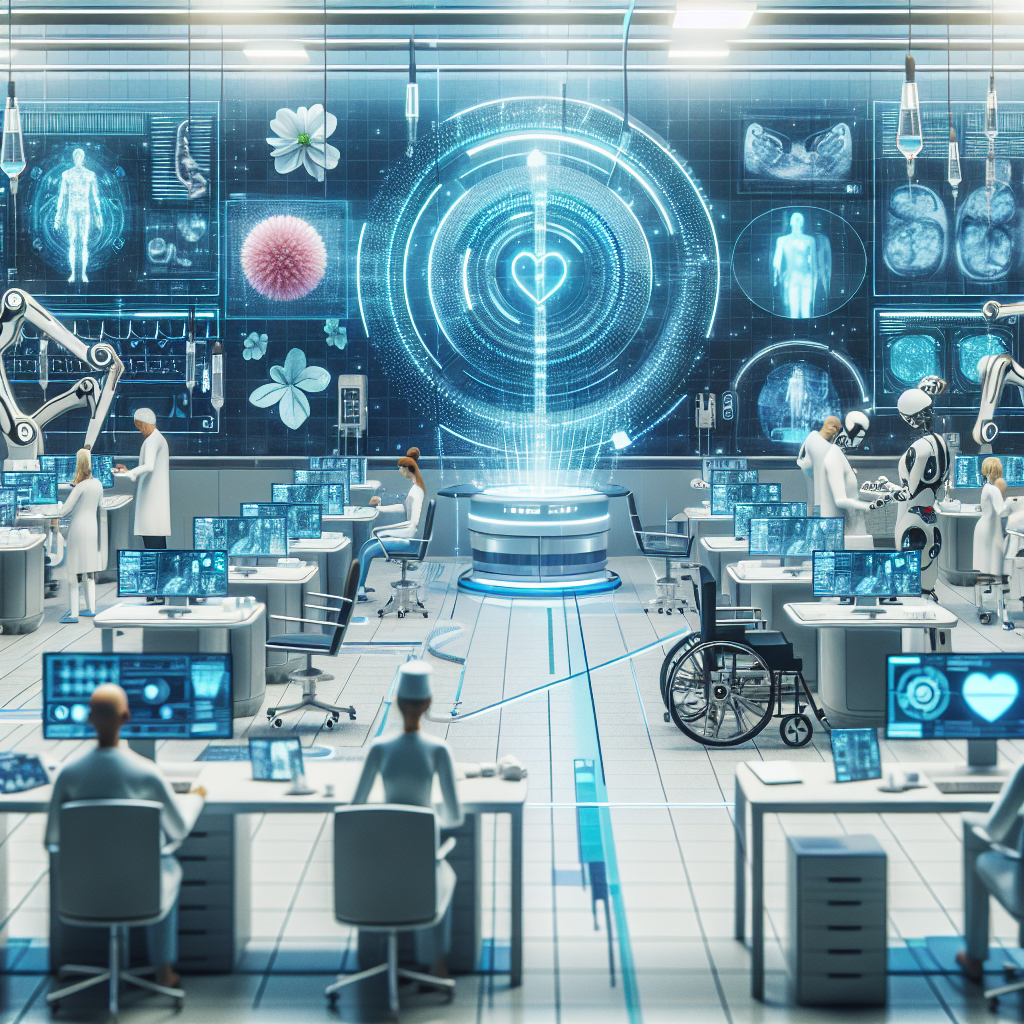Artificial Intelligence (AI) has been transforming various industries, and healthcare is no exception. The integration of AI in personalized healthcare has the potential to revolutionize the way we approach preventative care, diagnosis, treatment, and overall patient outcomes. From predictive analytics to personalized medicine, AI is paving the way for a more efficient and effective healthcare system.
One of the key benefits of AI integration in personalized healthcare is the ability to analyze large amounts of data quickly and accurately. With the rise of electronic health records and wearable devices, healthcare providers now have access to vast amounts of patient data. AI can analyze this data to identify patterns and trends that may not be apparent to human healthcare professionals. This can lead to earlier detection of diseases, more accurate diagnosis, and personalized treatment plans tailored to each individual patient.
Predictive analytics is another area where AI is making a significant impact in personalized healthcare. By analyzing a patient’s health data, AI can predict the likelihood of certain diseases or conditions developing in the future. This can allow healthcare providers to intervene early and implement preventative measures to reduce the risk of developing these conditions. For example, AI can analyze a patient’s genetic data and lifestyle factors to predict their risk of developing heart disease or diabetes, and recommend lifestyle changes or medications to lower that risk.
AI is also being used to personalize treatment plans for patients. By analyzing a patient’s genetic makeup, medical history, and treatment response data, AI can recommend the most effective treatment options for each individual. This can lead to better outcomes and reduced side effects for patients, as treatments are tailored to their unique biology and needs.
In addition to personalized treatment plans, AI is also being used to improve medication adherence and patient engagement. AI-powered chatbots and virtual assistants can provide patients with real-time support and reminders to take their medications, schedule appointments, and follow up on treatment plans. This can improve patient outcomes and reduce healthcare costs by preventing medication errors and unnecessary hospitalizations.
Another important application of AI in personalized healthcare is remote monitoring and telemedicine. With the rise of wearable devices and telehealth platforms, healthcare providers can now monitor patients’ health data in real-time and provide virtual consultations and follow-ups. AI can analyze this data to detect changes in a patient’s health status and alert healthcare providers to intervene if necessary. This can improve access to care for patients in remote or underserved areas, and reduce the burden on healthcare systems by preventing unnecessary hospital visits.
Despite the many benefits of AI integration in personalized healthcare, there are also challenges and concerns that need to be addressed. One of the main challenges is the ethical and privacy implications of using AI to analyze sensitive health data. Healthcare providers and AI developers must ensure that patient data is protected and used in a secure and ethical manner, in compliance with regulations such as HIPAA.
Another challenge is the potential for bias in AI algorithms. If AI is trained on biased data, it can perpetuate existing disparities in healthcare outcomes. Healthcare providers must be mindful of this risk and take steps to ensure that AI algorithms are fair and unbiased in their recommendations.
Additionally, there is the concern of job displacement in healthcare due to the automation of certain tasks by AI. While AI can improve efficiency and accuracy in healthcare, it is important for healthcare professionals to adapt to the changing landscape and acquire new skills to work alongside AI systems.
Overall, the future of AI integration in personalized healthcare is promising, with the potential to revolutionize the way we approach healthcare delivery and improve patient outcomes. By harnessing the power of AI to analyze data, personalize treatment plans, and improve patient engagement, healthcare providers can deliver more effective and efficient care to their patients.
FAQs:
1. How is AI being used in personalized healthcare?
AI is being used in personalized healthcare to analyze large amounts of patient data, predict the likelihood of certain diseases developing, personalize treatment plans, improve medication adherence, and provide remote monitoring and telemedicine services.
2. What are the benefits of AI integration in personalized healthcare?
The benefits of AI integration in personalized healthcare include earlier detection of diseases, more accurate diagnosis, personalized treatment plans, improved medication adherence, and remote monitoring and telemedicine services.
3. What are the challenges of AI integration in personalized healthcare?
The challenges of AI integration in personalized healthcare include ethical and privacy concerns, potential bias in AI algorithms, and job displacement in healthcare due to automation by AI.
4. How can healthcare providers ensure that AI is used ethically in personalized healthcare?
Healthcare providers can ensure that AI is used ethically in personalized healthcare by protecting patient data, ensuring compliance with regulations such as HIPAA, and monitoring AI algorithms for bias and fairness.
5. What is the future of AI integration in personalized healthcare?
The future of AI integration in personalized healthcare is promising, with the potential to revolutionize healthcare delivery and improve patient outcomes through personalized treatment plans, predictive analytics, improved medication adherence, and remote monitoring services.

